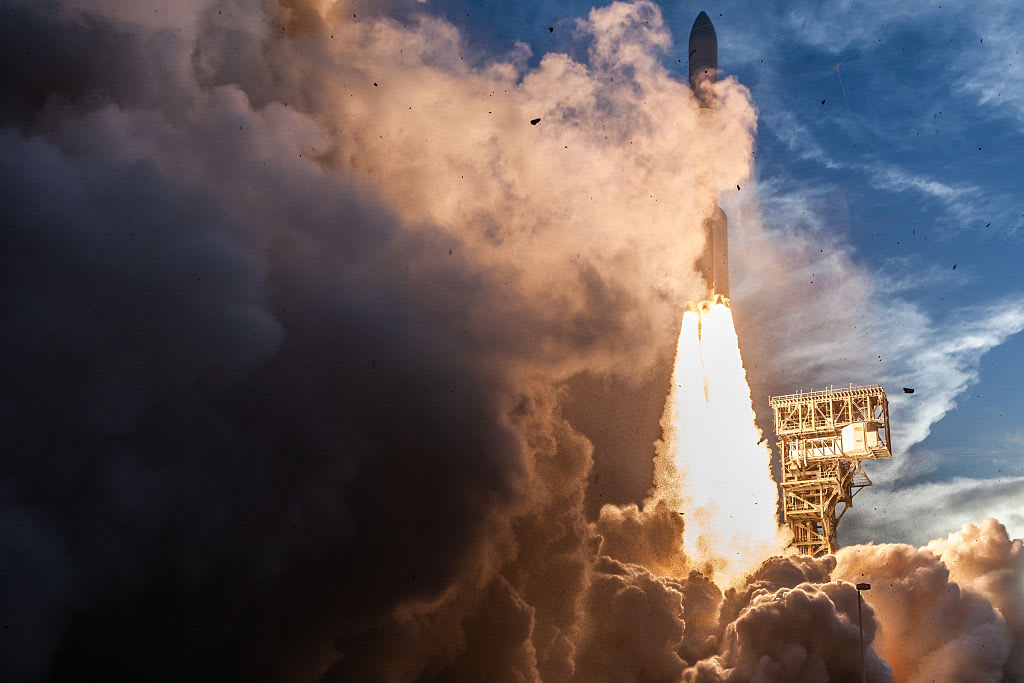NASA rover unravels history of lake on Mars that grew up to 22 miles wide, 100 feet deep
NASA's Perseverance rover has learned new data about a major crater on Mars, teaching researchers and astronomers about how the structure was formed and when water was present on the planet.
Perseverance, which landed on Mars in February 2021, has been exploring the Jezero Crater as part of its mission to look for signs of ancient life and collect rock and regolith samples to bring back to Earth.
The crater is believed to have once been flooded with water and been home to a river delta, according to NASA, and it's possible that microbial life existed there at some point in its 3.5-billion-year history.
The rover's exploration of the crater has allowed scientists to develop a detailed timeline of the structure's formation, NASA said, and confirmed that there were "three major periods" after water entered the crater. A short video, released by NASA, shows an artist's rendering of water breaking into the crater and beginning the process.
In the first period, fine-grained mud and sand that are known for preserving fossilized life in similar Earth environments came into the crater. Next, the crater's lake grew as wide as 22 miles in diameter and as deep as 100 feet, causing the creation of sedimentary layers. The third and final stage occurred when "high-energy rivers" carried boulders that were rounded as they traveled in the water.
Proof of each of these stages was observed by Perseverance, NASA said. The first stage was observed at an area known as Hogwallow Flats, where the rover collected sedimentary rocks and in 2022 sent back images that NASA said were the most detailed view ever returned from the surface of Mars.
Data about the crater, its evolution and water patterns in the area are helping Perseverance with its search for signs of ancient microbial life. In addition to characterizing Mars' geology, the rover is learning about the planet's past climate and working to "pave the way for human exploration of the Red Planet," NASA said.





